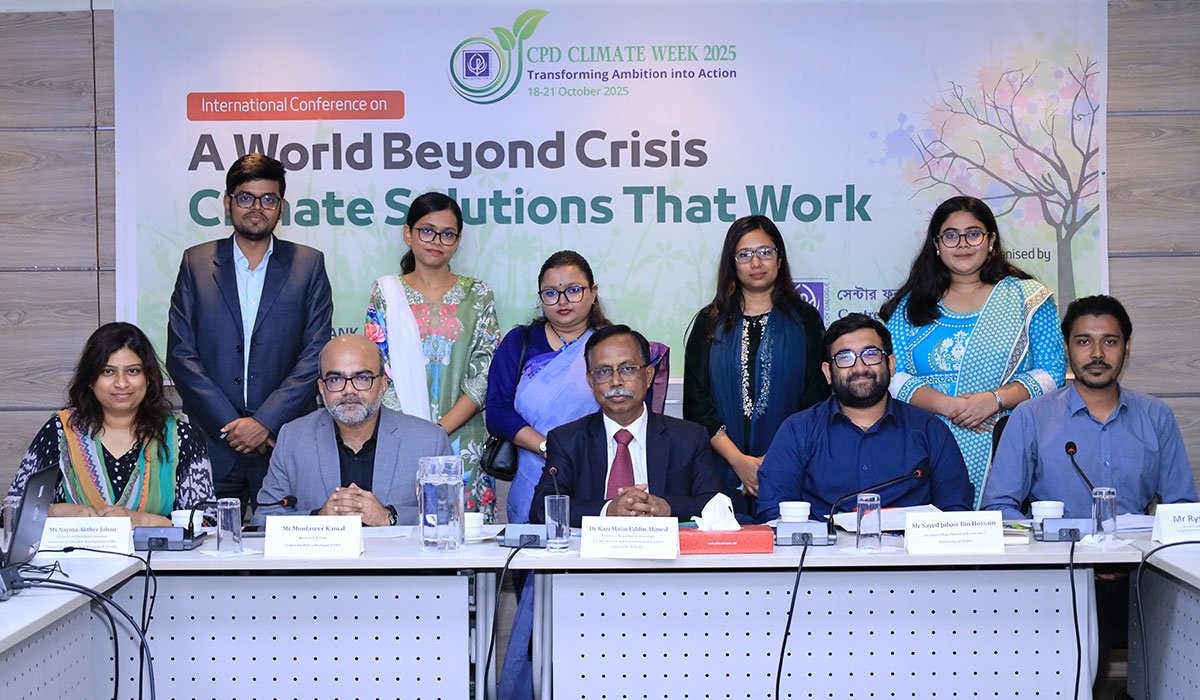
Young researchers from Bangladesh and beyond brought fresh ideas and bold perspectives to the second day of CPD Climate Week 2025, held on Sunday, 19 October 2025, at the BRAC Centre Inn, Dhaka. The Paper Presentation by Young Scholars highlighted breakthrough studies on adaptation, resilience, finance, and technology across six thematic streams, chaired by distinguished academics and evaluated by panels of experts.
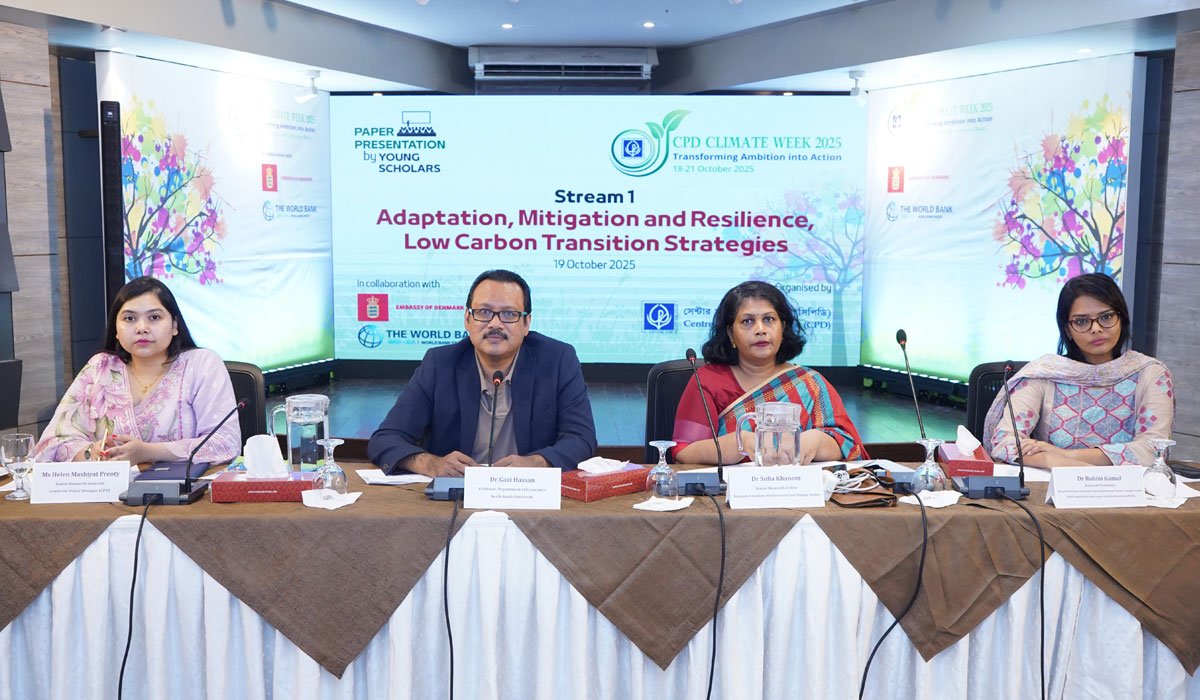
The day began with lively discussions on climate adaptation and low-carbon transitions, in Stream 1, chaired by Dr Gazi Hassan, Professor of Economics at North South University. The Best Paper Award went to Mr Ahnaf Shahriyar from BUET for “Effects of Absolute Humidity on Dengue Cases in Dhaka City.” Judges Dr Rohini Kamal (BIGD), Dr Sufia Khanom (BIISS), and Ms Helen Mashiyat Preoty (CPD) praised the study’s timely insights into climate-driven health risks in urban areas.
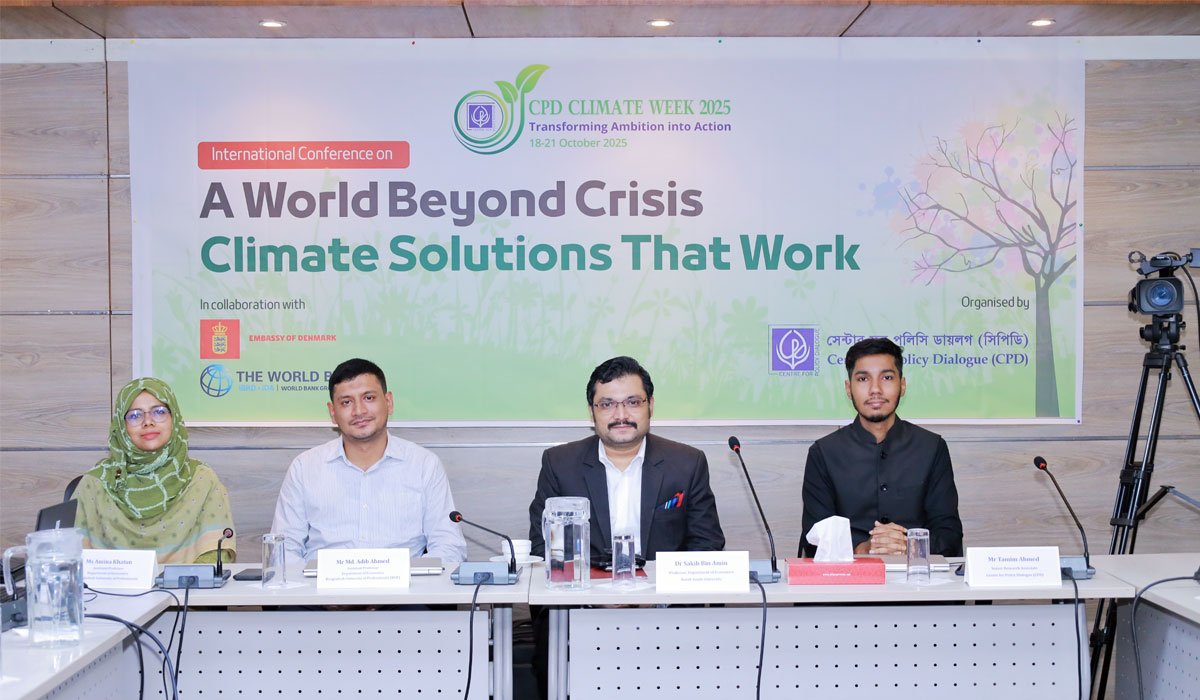
Exploring locally led adaptation and nature-based solutions, Dr Dwijen Mallick of CPD chaired the second stream. The award was claimed by Mr Emal Ahmad Hussainzad and Mr Zhonghua Gou from Wuhan University, China, for their paper “Two Decades of Warming: Urban Expansion and Accelerated Heat Island Effects in Kabul, Afghanistan.” Judges Mr Shamir Shehab (BYEI), Ms Iffat Mahmud (The World Bank), and Mr Mohammad Abu Tayeb Taki (The World Bank) commended the research for offering actionable, nature-based urban resilience strategies.
As conversations turned to climate justice and disaster risk reduction, Dr Sakib Bin Amin of North South University led a thought-provoking session where Ms Hira Saleem from Pakistan’s National University of Sciences & Technology won the Best Paper Award for “Modelling Forest Fire Risk Using Machine Learning and Satellite Remote Sensing.” Judges Mr Md. Adib Ahmed, Ms Amina Khatun (BUP), and Mr Tamim Ahmed (CPD) noted the study’s innovative application of data science for climate-risk management.
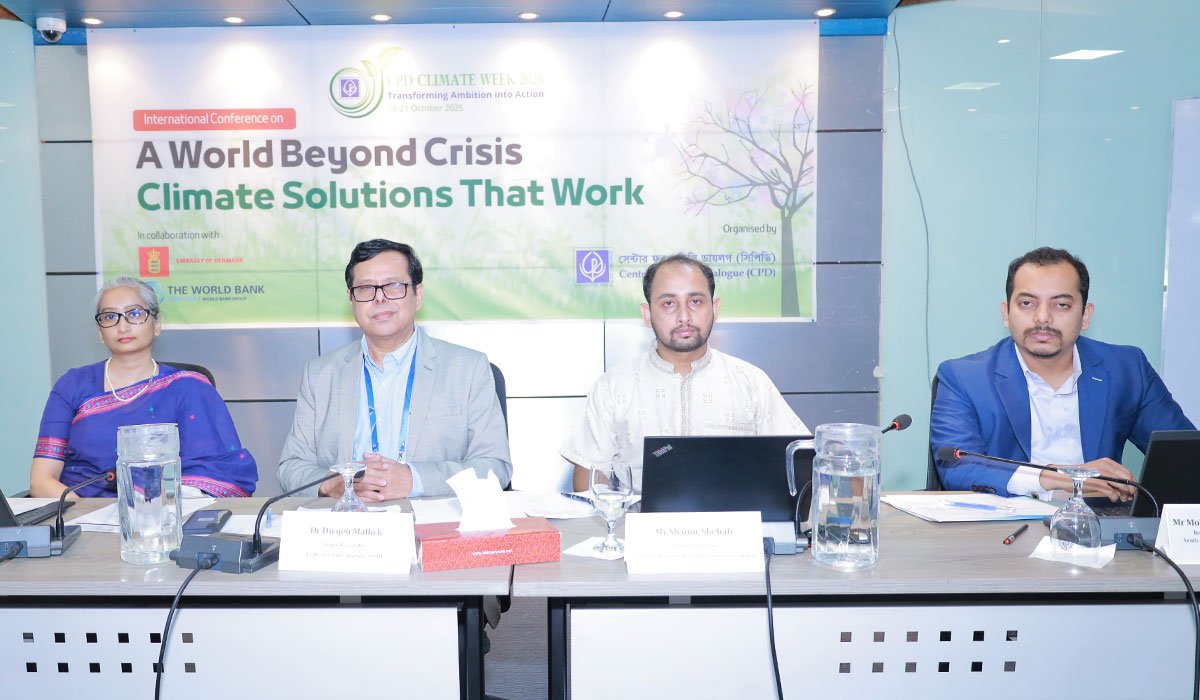
In a session on climate risks and finance, chaired by Dr Sayera Younus of CPD, Mr Towhidul Islam from Shahjalal University of Science and Technology earned recognition for his work on “Modelling the Ecological Niche and Future Distribution of Aquilaria malaccensis in Bangladesh.” The judges — Mr Syed Yusuf Saadat (UNDP), Mr Md. Rafid Abrar Miah (BIISS), and Mr Istihak Rayhan (Jahangirnagar University) — praised the research for its strong scientific rigour and policy relevance in biodiversity conservation.
Highlighting the sectoral impacts of climate change and green jobs, Dr Syed Mortuza Asif Ehsan, Chairperson of the Department of Economics at North South University, guided a vibrant discussion. Ms Darlene Mbande Nakoma from the University of Malawi received the Best Paper Award for “Weathering Change: Understanding Household Shifts in the Age of Climate and Energy Crisis.” Judges Dr Farzana Misha (BRAC University), Dr T.S. Amjath Babu (CIMMYT), and Mr Md. Abdus Sattar Moin (East West University) applauded the study’s nuanced approach to household adaptation and economic resilience.
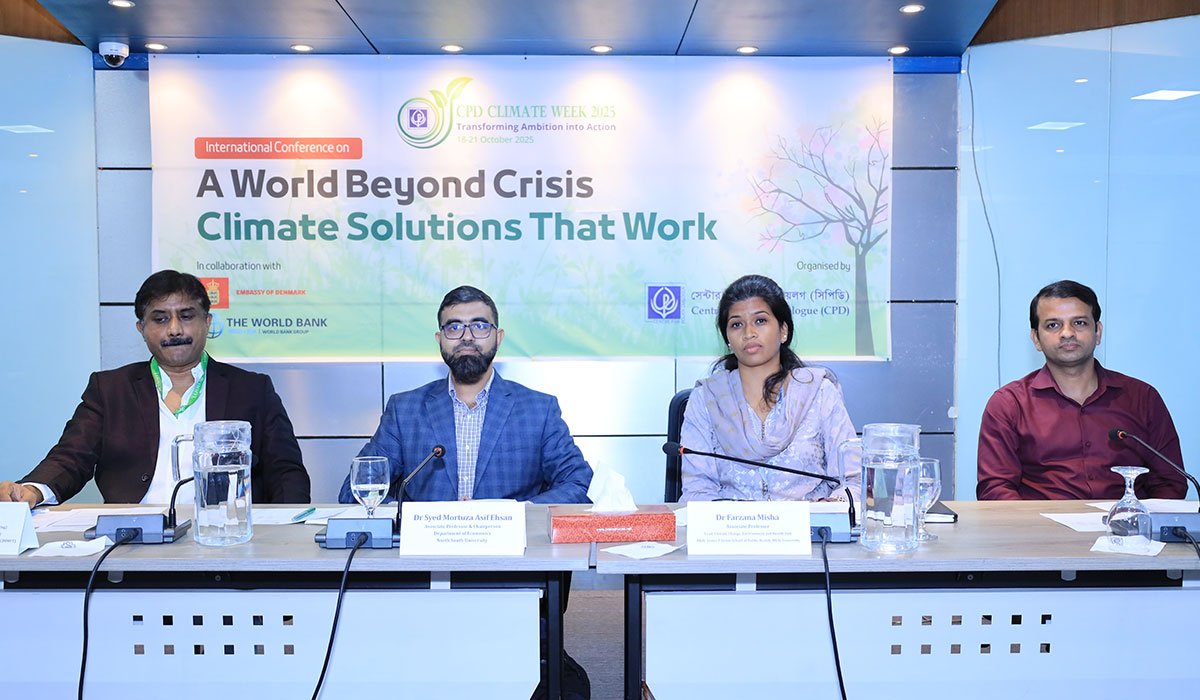
Concluding the day, Dr Kazi Matin Uddin Ahmed of the University of Dhaka chaired a session on green technologies, circular economy, and digital innovation. Ms Shaharia Salim Oishee from Khulna University won the Best Paper Award for “Effect of Regenerative Agriculture on Climate Change Mitigation for Farmers in Khulna District.” Judges Mr Muntaseer Kamal (CPD), Mr Sayed Jubair Bin Hossain (University of Dhaka), and Ms Nayma Akther Jahan (ULAB) commended the paper’s practical, farmer-led model for low-carbon transformation.
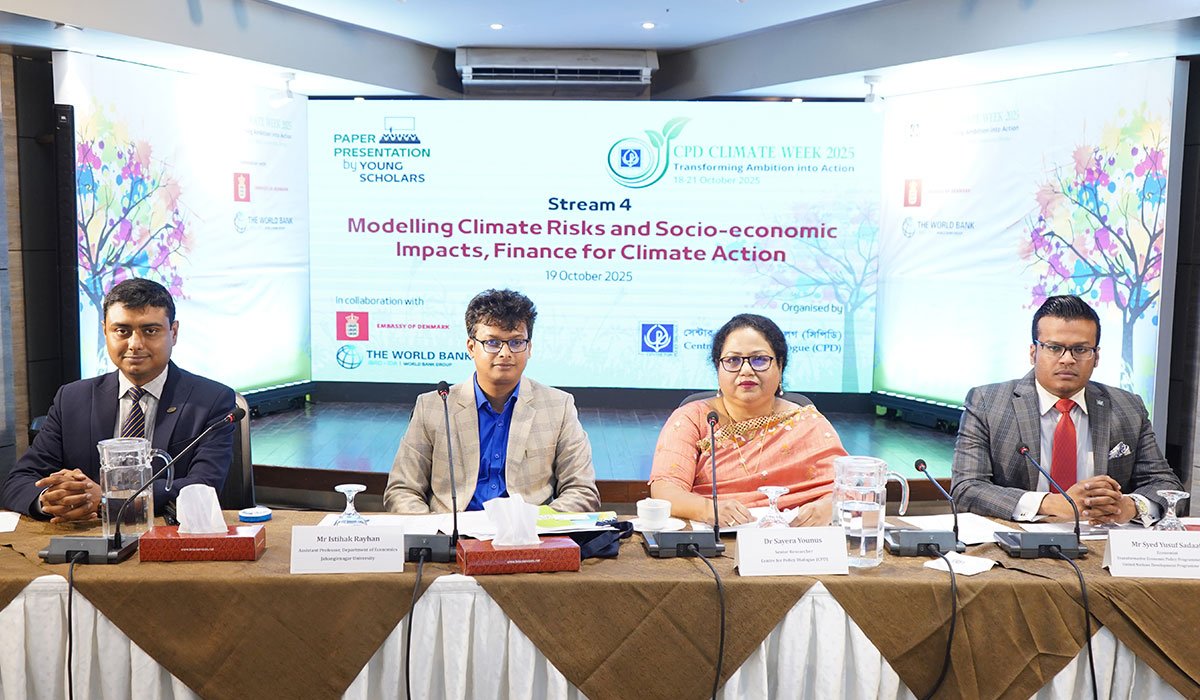
The day’s presentations underscored how young researchers are bridging science and policy, offering grounded, data-driven solutions for a climate-resilient future. Their contributions reflect a new generation of thinkers ready to turn innovation into impact.


